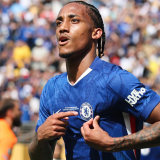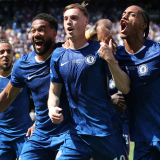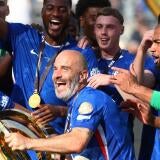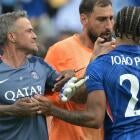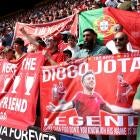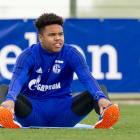Palmeiras, Porto keep door open for Lionel Messi's Inter Miami at FIFA Club World Cup
Brazil's Palmeiras tied 0-0 with Portugal's Porto in their group stage opener on Sunday
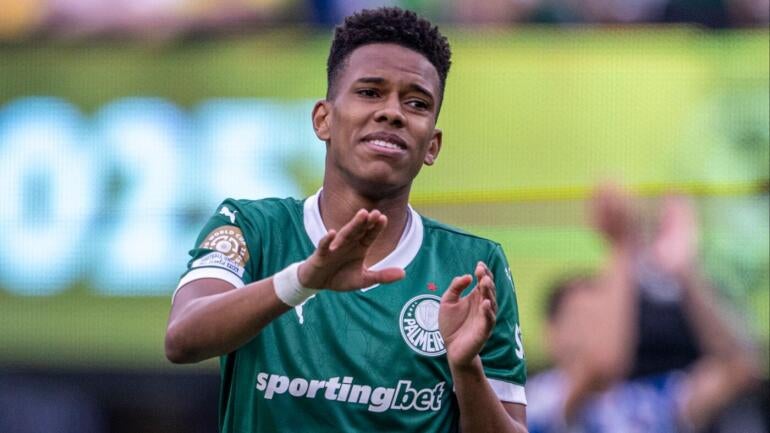
EAST RUTHERFORD, N.J. – Say what you will about the Club World Cup (and there is so, so much to say), but the format, inflated as it may be at 32 teams, does offer a truer sample size of how different confederations stack up against each other than the eight-team format did. Sunday offered a few different looks at that concept – while Bayern Munich put 10 past amateur Auckland City FC in Cincinnati, things were far more even at MetLife Stadium between Palmeiras and Porto a few short hours later. So even, actually, that the pair concluded their Group A affair scoreless.
It was the first of several matchups during the group stage that featured a matchup between teams from South America and Europe, games that offer arguably the best opportunity at a so-called upset. The strongest teams undoubtedly come from Europe but South America has always had the best claim to give the Europeans a run for their money, which Palmeiras did on Sunday. In an attack-focused match, it was easy to argue that they were the better of the two teams, outshooting Porto 17 to 11 and posting 2.22 expected goals to the Portuguese side's 0.84. Estevao, the 18-year-old who is on his way to Chelsea once the Club World Cup is over, took three shots of his own and generated 0.89 expected goals on his own from them.
None of that, though, translated into a goal.
"I think we lacked efficiency for finalizing our plays, especially at the end of the game," Estevao said post-match. "What wins matches are goals."
It was the only thing missing from a game with a combined 28 shots, especially so for a Palmeiras team that were trying to make a point. The Brazilian side comes to the Club World Cup with some notable talent, though the results varied — while the Chelsea-bound Estevao took home the player of the match honors, ex-Barcelona player Vitor Roque offered zero shots in 77 minutes on a day Palmeiras were taking shots for fun.
The outcome was equally mixed. Palmeiras have the foundations to do some damage, but the execution left something to be desired.
"The team played well and we have trained for this, we put pressure on our opponents," Palmeiras manager Abel Ferreira said. "We counter-attacked and when teams are not so well-prepared, balls are not moving, we're still good in those situations. We are perhaps not exceptional at one part of the game but we are good at all of them. … We are frustrated about the result, very sincerely, but that is what football is about and you have to accept it."
In some regards, it feels like an opportunity squandered by the Brazilian team. Group A is wide open as things stand, with no goals and one point for each team representing an eclectic selection of the qualified teams, a group that includes Lionel Messi's Inter Miami and Egypt's Al Ahly. Sunday's match in the New York City suburbs played out a lot like the other match in Group A, the opener between Miami and Al Ahly on Saturday. Lionel Messi's Miami were not necessarily the favorites but they were the high-profile team loaded with world-class talent in that matchup, though it was Al Ahly who ultimately had the better chances. They generated 1.98 expected goals from 11 shots, while Miami clocked in at 0.84 from 14 shots. Al Ahly threw away a few of their opportunities, most notably the penalty missed in the first half by Trezeguet, the former Aston Villa player who joined Al Ahly for the Club World Cup.
There's a glass-half-full version of this story, too, for Palmeiras. As much as they may have — or should have —scored on Sunday, the fact that everyone is still tied in Group A means they have a chance at proving themselves in their next two matches.
"For me, to train a football team is like riding a bike – you have to keep on pedaling," Ferreira said. "Sometimes it looks easy and sometimes you get there and you keep on pedaling and keep on training and you hope that you will be more efficient in the next matches."
Pitch, attendance draw attention
In the early days of the new-look Club World Cup, the primary question is still about what the in-stadium vibes will feel like rather than how each team will play. At MetLife Stadium on Sunday, the crowd skewed heavily in Palmeiras' favor, with green-clad fans vocal for the entirety of the 90 minutes.
It was hard not to notice that the 82,500 seater was not actually full. While the lower bowl was packed, fans were scattered across the upper tiers and tickets clearly were not sold in certain parts of the stadiums, in sections that were unlikely to appear on the broadcast. It is also unclear how much spectators paid for entry since the months leading up to the tournament included reports about ticket prices being slashed. The announced attendance was 46,275, a respectable figure but one that perhaps spoke to the demand for most of the Club World Cup's group stage slate.
"The issue is that the stadium is actually huge — 46,000 people in the stadium, in my opinion, is fantastic," Ferreira said. "Maybe they could have closed the third ring, the upper ring of the stadium and placed everybody in the lower rings of the stadium."
The playing surface, meanwhile, is inherently newsworthy in its own right. FIFA is using the Club World Cup as a trial run for next year's World Cup, with both competitions taking place at several stadiums where artificial turf is king, but will host grass pitches for soccer. The feedback was minor, but clear.
"I think that the pitch should be watered a little bit more because the ball was a little bit slow," Estevao said.
It was a sentiment echoed by Porto manager Martin Anselmi, who noticed how his side's game plan was impacted by the slickness on the field — or a lack thereof.
"I do feel like the pitch cost us to be a bit imprecise, especially in the first half when we had the advantage. When we wanted to accelerate the game, there were some mistakes," he said, "but as I said in the last press conference, the grass is the same for both teams."
A rainy second half, though, improved matters for both sides.
"The pitch was dry," Ferreira, the Palmeiras manager, said. "I don't know who the patron saint is for rain … [but] we were able to impose our pace on the match."
![[object Object] Logo](https://sportshub.cbsistatic.com/i/2020/04/22/e9ceb731-8b3f-4c60-98fe-090ab66a2997/screen-shot-2020-04-22-at-11-04-56-am.png)



